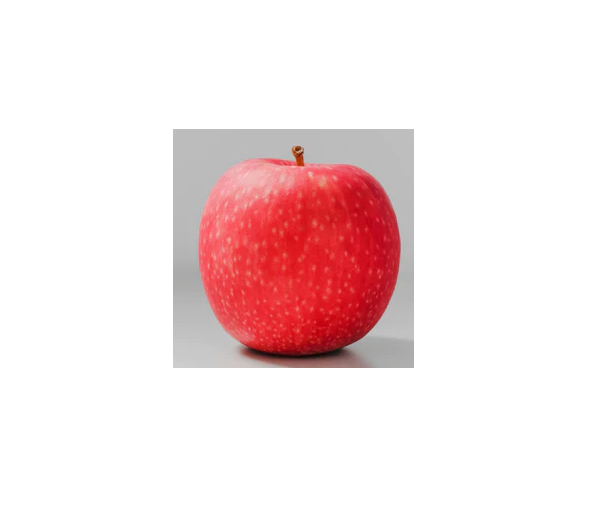50 Most Common Verbs in Chinese
December 05, 2021
A sturdy vocabulary forms the foundation for learning any language. Where better to start than with the words that describe our actions? After all, no sentence is complete without a verb.
Below, you’ll find the most commonly used Chinese verbs. Learning these by heart is a must for anyone looking to have a chat in Chinese.
Already know some verbs in Chinese? Sign up for Chinese lessons and learn more!But take heed, you will need more than rote memorization in order to start dropping these Chinese verbs into conversation naturally. You will also need to take note of the correct way to use them. We’ve included some example sentences to help you get the hang of it.
1. 是 shì To be
As you might expect, 是 is the most commonly used verb in Chinese. Use it any time you want to describe who you are or what something or someone is.
我是学生。
Wǒ shì xuéshēng.
I am a student.
我的老师是一个中国人。
Wǒ de lǎoshī shì yīgè zhōngguó rén.
My teacher is Chinese.
But be careful: Chinese does not always use 是 between a noun and an adjective. Usually, when 是 is included before an adjective, it is in order to add emphasis. When this happens, it is best to add the word 的 at the end of the phrase.
我是学中文的,不过我也喜欢学日语。
Wǒ shì xué zhōngwén de, bùguò wǒ yě xǐhuān xué rìyǔ.
I study Chinese, but I also like studying Japanese.
Learn more about how to use 的 here.
2. 在 zài To be at/in
Chinese uses 在 to describe location, much like “at” or “in.” Whenever someone asks where something is, both the question and answer should use 在.
你在哪里?
Nǐ zài nǎlǐ?
Where are you?
我在咖啡厅。
Wǒ zài kāfēi tīng.
I’m at the café.
You can also use the words 上 shàng or 下 xià to describe a location on top of or underneath an object, respectively.
书在桌子上。
Shū zài zhuōzi shàng.
The book is on the table.
我的手机在椅子下。
Wǒ de shǒujī zài yǐzi xià.
My phone is under the chair.

3. 去 qù To go
Headed somewhere? You’ll need to use 去 to describe your action of going to a location.
我想去图书馆做作业。
Wǒ xiǎng qù túshū guǎn zuò zuo yè.
I want to go to the library to do homework.
4. 来 lái To come
In a way, the word 来 is like the opposite of 去, describing movement toward the speaker rather than away.
请来这里吃饭。
Qǐng lái zhèlǐ chīfàn.
Please come here to eat.
5. 回 huí To return, go back
Another verb to describe travel or motion is 回. Often, this word is used in conjunction with 来 or 去 to describe returning coming or going back to a location.想回家吗?
Xiǎng huí jiā ma?
Do you want to return home?
快回来!
Kuài huílái!
Come back quickly!
他们回去了
Tāmen huíqùle
They went back.
6. 到 dào To Arrive
As a verb, 到 describes the act of arriving, whether it’s a person arriving at a location, a train pulling into a station, or time reaching its limit.
我们到车站了。火车也到了。
Wǒmen dào chēzhàn le. Huǒchē yě dào le.
We have arrived at the station. The train got here too.
时间到了。
Shíjiān dào le.
Time is up.
7. 看 kàn To look, watch
Whatever your eyes are pointed at, chances are you can use 看 to describe the act of looking or watching. You can even use 看 to talk about reading silently to yourself.
你想看哪个电影?
Nǐ xiǎng kàn nǎge diànyǐng?
Which movie do you want to watch?
我看报纸的时候不能看电视。
Wǒ kàn bàozhǐ de shíhòu bùnéng kàn diànshì.
I can’t watch TV while I’m reading the newspaper.
The word 看 can also be used to describe or ask about someone’s view on a matter, often used with 来.
你怎么看这个问题?
Nǐ zěnme kàn zhège wèntí?
What do you think of the problem?
在我看来,不是很重要。
Zài wǒ kàn lái, bùshì hěn zhòngyào.
It’s not that big of a deal in my view.
8. 想 xiǎng Would like to; To think
The word 想 is most commonly used with another verb to describe wanting to do something.
他想吃苹果。
Tā xiǎng chī píngguǒ.
He wants to eat an apple.
But 想 also means “to think”. You can use 在想 to describe what you are thinking about or 想到 to describe arriving at a thought.
我在想怎么去
Wǒ zài xiǎng zěnme qù
I’m thinking of how I’ll go there.
他们想到一个办法了。
Tāmen xiǎngdào yīgè bànfǎ le.
They thought of a way.
9. 要 yào To want; need; going to; order
The verb 要 can be used much like 想 when it comes to talking about what people want or need. However, 想 is only used in conjunction with other verbs (that is, wanting to do something), while 要 is more flexible because it can also be used with nouns (that is, wanting things).
我要一台电脑。
Wǒ yào yī tái diànnǎo.
I need a computer.
When used with verbs, 要 often means “going to.”
要下雨了。
Yào xià yǔle.
It’s going to rain.
Finally, 要 can be used to talk about ordering, as in making an order at a restaurant.
我朋友要了一杯果汁
Wǒ péngyǒu yàole yībēi guǒzhī
My friend ordered a glass of juice.
10. 给 gěi To Give
Time to give you a few tips on how to use 给. The most common use of 给 as a verb is to describe the act of giving something.
请给我一杯水喝。
Qǐng gěi wǒ yībēi shuǐ hē.
Please give me a glass of water to drink.
Additionally, 给 is commonly used as an alternative to 让 to mean “to let” or “to make”.
给我看看。
Gěi wǒ kàn kàn.
Let me take a look.
上课给我累死了。
Shàngkè gěi wǒ lèi sǐle.
Class has tired me out.
11. 过 guò To pass, cross, exceed, celebrate (a holiday)
Of all the commonly used verbs in Chinese, 过 is one of the most difficult to master because it has so many meanings. Below are just a few of the ways that you will hear it being used as a verb.
One common use is to mean “to pass” or “to cross”.
灯绿了,可以过马路。
Dēng lǜle, kěyǐguò mǎlù.
The light is green, (we) can cross the road.
小心不要过站。
Xiǎoxīn bùyàoguò zhàn.
Be careful not to pass the station.
Whenever you celebrate a birthday or holiday, you can use 过 to describe it.
明天怎么过生日?
Míngtiān zěnmeguò shēngrì?
How will (you) celebrate (your) birthday tomorrow?
You can also use 过 to describe exceeding or surpassing.
考分过了90分。
Kǎofēn guòle 90 fēn.
(I) scored more than 90 points on the test.

12. 会 huì Can, will, would
The word 会 is one of those verbs that is usually used before another verb. Its most common use is to describe having the knowledge or capability to do something.
他会说好多语言。
Tā huì shuō hǎoduō yǔyán.
He can speak many languages.
However, using 会 with another verb can also describe future events as well as hypotheticals.
我一定会去。
Wǒ yīdìng huì qù.
I will certainly go.
大卫不会在这里。
Dà wèi bù huì zài zhèlǐ.
David will not be here.
See more about how to use 会 here.
13. 有 yǒu Have; there is/are
Chinese uses the word 有 to talk about having something in the sense of possession, but it is also used in the sense of having done something, or more often, having not done something.
Important: For most verbs, you can use the word 不 bù, before them to form a negative, for example, “我不去 wǒ bù qù (I’m not going)”. But for 有, you almost always need to use the negative form “没有 méiyǒu”.
我妈妈有那本书。
Wǒ māmā yǒu nà běn shū.
My mom has that book.
我明天没有时间。
Wǒ míngtiān méiyǒu shíjiān.
I don’t have time tomorrow.
他还没有来。
Tā hái méiyǒu lái.
He still hasn’t come.
You can also use 有 to talk about the existence of something.
放心,有一个餐厅。
Fàngxīn, yǒu yīgè cāntīng.
Don’t worry, there is a restaurant.
14. 能 néng Can, be able to
Here is another verb that means to be able to do something. Like 会, the word 能 can be used in the sense of knowing how to do something, but it is more commonly used in the sense of having permission or the ability to do something.
你病了不能喝酒。
Nǐ bìngle bùnéng hējiǔ.
You can't drink alcohol if you are sick.
我能进去吗?
Wǒ néng jìnqù ma?
May I enter?
Additionally, you can use 能 to talk about possibilities.
她能不来吗?
Tā néng bù lái ma?
Is it possible she won’t come?
15. 可以 kěyǐ Can, may
The verb 可以 is often compared to 会 and 能. Unlike 会, however, it is rarely used to describe knowing how to do something. Instead, like 能, you can use it to talk about permission or possibility. When describing denied permission, 不可以 is stronger than 不能 and denotes an order (or a rule which must be followed).
这个车可以坐四个人。
Zhège chē kěyǐ zuò sì gèrén.
Four people can fit in this car.
还没有下课,你不可以走。
Hái méiyǒu xiàkè, nǐ bù kěyǐ zǒu.
Class is not over, you may not leave.
16. 吃 chī To Eat
Who doesn’t love to eat? Use the word 吃 when talking about meals, snacks, and other edible things.
我们一起吃午饭吧。
Wǒmen yīqǐ chī wǔfàn ba.
Let’s have lunch together.
吃苹果,好吗?
Chī píngguǒ, hǎo ma?
Have an apple, will you?
今天吃药了吗?
Jīntiān chī yàole ma?
Did you take your medicine today?

17. 喝 hē To Drink
Not everything that goes in your belly can use 吃, however. For liquids, use 喝 to describe drinking.
Important: Chinese uses 喝, not 吃, to talk about consuming soup and yogurt!
每天喝八杯水。
Měitiān hē bā bēi shuǐ.
Drink eight glasses of water per day.
喝汤吗?
Hē tāng ma?
Would you like some soup?
18. 走 zǒu To Walk, leave
Whether it’s walking around or walking out, you can use 走 to describe it. In fact, when talking about leaving or getting started on a trip, it doesn’t have to be on foot! Use 走 when pressing the gas on your car or peddling away on a bicycle.
我想走一走。
Wǒ xiǎng zǒu yī zǒu.
I want to walk around a bit.
妹妹走了。
Mèimei zǒule
My little sister left.
车走得很慢。
Chē zǒu dé hěn màn.
The car is moving quite slowly.
走吧!
Zǒu ba!
Let’s go!
19. 跑步 pǎobù To Run
Now let’s pick up the pace! When your legs are carrying you swiftly down the track, 跑步 is the verb to use.
跑步来的,很累。
Pǎobù lái de, hěn lèi.
I ran here so I am tired.
20. 进 jìn To Enter, go/come in
Coming in? Use 进 to talk about entrance. You will also see 进 used often in conjunction with 去 and 来.
请进。
Qǐng jìn.
Please come in.
我们能进去吗?
Wǒmen néng jìnqù ma?
May we enter?
风进来了。
Fēng jìnláile.
The wind has come in.
21. 出 chū To Exit, go/come out
The word 出 is largely used in the same way as 进, except that it is used to describe going out rather than in.
快出去!
Kuài chūqù!
Quick, get out!
However, 出 has another important use, which is to describe sudden arrival or happening.
出了一个问题。
Chūle yīgè wèntí.
A problem has arisen.
22. 知道 zhīdào To Know
Knowledge (about verbs) is power! The verb 知道 can be used to describe awareness, knowing facts, and knowing how to do something.
老师知道你没有做作业。
Lǎoshī zhīdào nǐ méiyǒu zuò zuòyè.
The teacher knows you didn’t do your homework.
我知道怎么走。
Wǒ zhīdào zěnme zǒu.
I know the way to go.
好的,我知道了。
Hǎo de, wǒ zhīdàole.
Alright, I got it.
23. 认识 rènshi To Know, recognize
When talking about knowing people, Chinese uses the verb 认识 instead of 知道.
她认识我的老师。
Tā rènshí wǒ de lǎoshī.
She knows my teacher.
Additionally, 认识 can mean “to recognize.”
我不认识那个字。
Wǒ bù rènshí nàgè zì.
I don’t recognize that character.
24. 了解 liǎojiě To Understand, comprehend
Use 了解 to talk about understanding and comprehension, especially when it comes to complex situations.
这学生很了解课程的内容。
Zhè xuéshēng hěn liǎojiě kèchéng de nèiróng.
This student understands the course content.
你了解爸爸的情况吗?
Nǐ liǎojiě bàba de qíngkuàng ma?
Do you understand dad’s situation?
25. 明白 míngbái To Understand, realize
Here is another word that means to understand, but 明白 is used quite differently from 了解. Instead of deep comprehension, 明白 is often used to describe understanding of meaning or sudden realizations.
我明白同学的意思。
Wǒ míngbái tóngxué de yìsi.
I understand what my classmate is trying to say.
我突然明白了。
Wǒ túrán míngbái le.
Suddenly I understood.
26. 用 yòng To Use
Here’s a useful word for you. As a verb, 用 describes using something.
你会用筷子吗?
Nǐ huì yòng kuàizi ma?
Do you know how to use chopsticks?
请用中文来说。
Qǐng yòng zhōngwén lái shuō.
Please say it in Chinese.
However, strangely enough, 用 often means “need” when used in the negative.
我不用学习。
Wǒ bùyòng xuéxí.
I don’t need to study.
27. 做 zuò To Do
In a way, 做 is verb for all verbs, referring generally to the actions we take.
她还没有做作业。
Tā hái méiyǒu zuò zuòyè.
She hasn’t done her homework yet.
咱么今天做什么呢?
Zán me jīntiān zuò shénme ne?
What are we doing today?
来,我给你做饭。
Lái, wǒ gěi nǐ zuò fàn.
I’ll cook for you.

28. 听 tīng To Listen, hear
Listen up! Whenever sound enters your ears, you can use 听 to describe it.
听老师说话。
Tīng lǎoshī shuōhuà.
Listen to what the teacher says.
对不起,没有听到。
Duìbùqǐ, méiyǒu tīng dào.
Sorry, I didn’t hear.
29. 说 shuō To Speak, say
When learning a new language, it’s important to know how to speak about speech itself!
想说什么?
Xiǎng shuō shénme?
What do you want to say?
这怎么说?
Zhè zěnme shuō?
How can I say this?
When used as “say,” the word 说 by itself is enough, but when used as “speak,” you will often hear the word 说话 shuōhuà.
跟我说话。
Gēn wǒ shuōhuà.
Speak with me.
30. 告诉 gàosù To Tell
A key part of speech is to tell others important information. For this, you can use the verb 告诉.
请告诉大家你怎么做的。
Qǐng gàosù dàjiā nǐ zěnme zuò de.
Please tell everyone how you did it.
31. 写 xiě To Write
Here is another important verb for any language learner that will help you talk (and write!) about putting pen to paper.
这个字怎么写?
Zhège zì zěnme xiě?
How do I write this character?
32. 坐 zuò To Sit
Go ahead and take a seat for this verb. You can use 坐 to describe sitting on a chair, sofa, or even on the ground.
我们上课了,请坐下。
Wǒmen shàngkèle, qǐng zuò xià.
Class has started, please sit down.
33. 起来 qǐlái To Stand up, rise
It’s not healthy to sit too long! At some point, you have to stand back up. Use 起来 to describe this action.
很累,不想起来。
Hěn lèi, bùxiǎng qǐlái.
I’m so tired, I don’t want to get up.
34. 买 mǎi To Buy
As much as we’d like to save money, we all have to make purchases now and then. Whenever you exchange money for goods, 买 is the verb to use.
我买了一本书看看。
Wǒ mǎile yī běn shū kàn kàn.
I bought a book to read.
35. 卖 mài To Sell
You will notice that the character 卖 looks quite similar to 买, and sounds similar too, as the only difference is in the tone. That’s no coincidence! Whenever there is a buyer, there is a seller, too.
这家店卖什么?
Zhè jiā diàn mài shénme?
What does this store sell?
36. 问 wèn To Ask
As you look over this list, you may have a few questions about how to use these verbs. Use the verb 问 when talking about asking.
问一下,厕所在哪里?
Wèn yīxià, cèsuǒ zài nǎlǐ?
May I ask, where is the bathroom?
我有很多问题想问。
Wǒ yǒu hěnduō wèntí xiǎng wèn.
I have many questions I want to ask.

37. 回答 huídá To Answer
Hopefully you have someone who can answer all your questions about Chinese verbs. (If not, we’re happy to help!) Use 回答 describe the response to a question.
然后她怎么回答?
Ránhòu tā zěnme huídá?
Then how did she answer?
老师回答很清楚。
Lǎoshī huídá hěn qīngchǔ.
The teacher answered clearly.
38. 开 kāi To Open, turn on
Whether you are opening a door or turning on a light, 开 is the verb to use for both such occasions.
请开门。
Qǐng kāimén.
Please open the door.
我想开电脑。
Wǒ xiǎng kāi diànnǎo.
I’d like to turn on the computer.
39. 关 guān To Close, turn off
As the opposite of 开, the verb 关 is also usable with both doors and electronics.
门关了。
Mén guānle.
The door is closed.
帮我关一下灯。
Bāng wǒ guān yīxià dēng.
Turn off the light for me.
40. 喜欢 xǐhuān To Like
Use the verb 喜欢 to talk about what gives you joy. This word can be used before nouns and other verbs.
我喜欢咖啡。
Wǒ xǐhuān kāfēi.
I like coffee.
你喜欢开车吗?
Nǐ xǐhuān kāichē ma?
Do you like driving?
41. 学 xué To Study, learn
Here’s a verb to describe what you’re doing right now – learning Chinese. You will also see this verb written as 学习 xuéxí.
学中文难吗?
Xué zhōngwén nán ma?
Is it hard to study Chinese?
我想学游泳。
Wǒ xiǎng xué yóuyǒng.
I want to learn to swim.
42. 教 jiāo To Teach
Though it’s possible to learn by oneself, it’s always helpful to have someone to teach you. To describe the action of teaching, use 教.
老师也会教文学。
Lǎoshī yě huì jiào wénxué.
The teacher can also teach literature.
43. 住 zhù To Live (somewhere), stay
When discussing where people reside, use the verb 住, usually along with 在. This verb can also be used for temporary stays, such as at a hotel.
他住在北京。
Tā zhù zài běijīng.
He lives in Beijing.
我们住旅馆吧。
Wǒmen zhù lǚguǎn ba.
Let’s stay in a hotel.
44. 帮助bāng zhù To Help
Everyone can use a hand now and then. The verb 帮 or 帮助 describes helping others as well as things and actions that are helpful. While 帮 is always a verb, 帮助 can also be a noun.
他喜欢帮助别人。
Tā xǐhuān bāngzhù biérén.
He likes to help others.
45. 等 děng To Wait
Patience is key to learning any language. The verb 等 can be used to talk about waiting, or, most often, to ask someone to wait.
请等一下。
Qǐng děng yīxià.
Please wait a moment.
我们等了好久。
Wǒmen děngle hǎojiǔ.
We have been waiting a long time.
46. 欢迎 huānyíng To Welcome, to be welcome
The verb 欢迎 often starts a sentence, indicating that the speaker is welcoming guests. If another verb follows after 欢迎, then the speaker is usually welcoming guests to do or participate in something.
欢迎大家。
Huānyíng dàjiā.
Welcome, everyone.
北京欢迎你。
Běijīng huānyíng nǐ.
Welcome to Beijing.
老师欢迎了他的学生。
Lǎoshī huānyíngle tā de xuéshēng.
The teacher welcomed his student.
47. 介绍 jièshào To Introduce
The verb 介绍 is important to know when meeting new people, as you might be asked to introduce yourself.
请介绍自己。
Qǐng jièshào zìjǐ.
Please introduce yourself.
48. 觉得 juéde To Feel, think
Here’s a verb that’s useful for talking about your own opinions, thoughts, or outlook.
我觉得好看。
Wǒ juédé hǎokàn.
I think it looks good.
你觉得呢?
Nǐ juédé ne?
What do you think?
But 觉得 can also be used to talk about feelings.
他觉得很累。
Tā juédé hěn lèi.
He feels very tired.
49. 开始 kāishǐ To Start, begin
Everything has a beginning. Use 开始 to talk about starting tasks or processes.
电影开始了。
Diànyǐng kāishǐle.
The movie has started.
今天从第二课开始。
Jīntiān cóng dì èr kè kāishǐ.
We’ll start from the second lesson today.
50. 结束 jiéshù To Finish, end
Of course, everything, too, must come to an end. Use 结束 to talk about wrapping things up.
我们结束了,可以下课。
Wǒmen jiéshùle, kěyǐ xiàkè.
We’ve finished, class is over.
 Now that you know some of the most common Chinese verbs, sign up for Chinese lessons and learn to use them in a sentence!
Now that you know some of the most common Chinese verbs, sign up for Chinese lessons and learn to use them in a sentence!
Post contributed by Joey Knotts